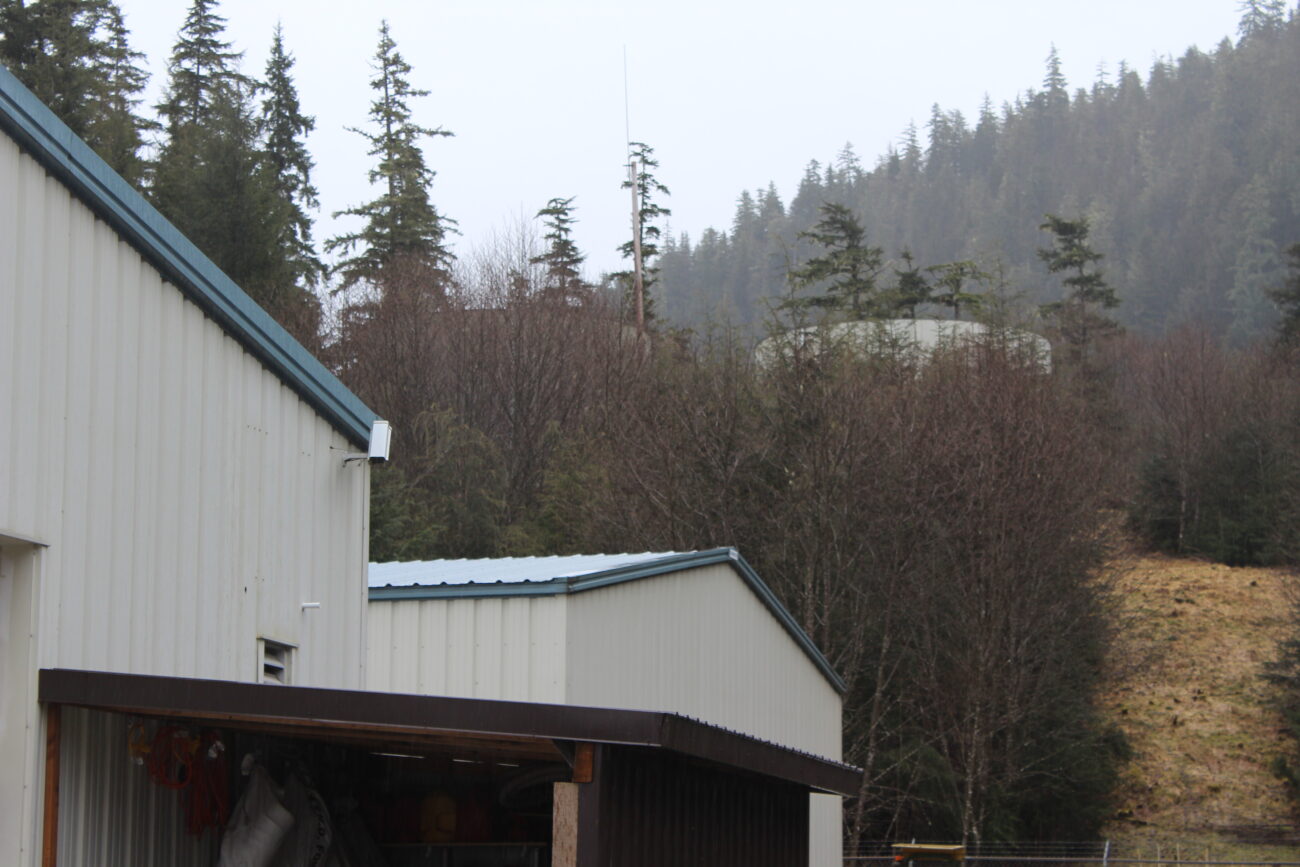
(Sage Smiley / KSTK)
Wrangell households can expect monthly utility bills about $20 higher starting in May. That’s after elected officials approved a sewer rate increase on March 22 and signaled a similar rate increase to the water rate could be approved next month.
Over the last few months, Wrangell’s government has been overhauling its rate and fee structure for public utilities, trying to shore up utility funds while facing looming infrastructure costs.
Most of Wrangell’s water and sewer customers aren’t metered, so households pay flat rates which haven’t been adjusted since 2019.
Earlier this month, the borough proposed a 21% increase to water and sewer rates – around $10 per month for each rate. It also proposed a longer-term rate increase schedule, where rates would steadily increase over the next few years: 5% next year, 3% the following year, 2% the year after that. All of the future rate increases would have to be approved by the assembly before going into effect.
Borough finance director Mason Villarma told the assembly earlier this month (March 22) that revenues are needed to pay for a new water treatment plant. The assembly has already borrowed $3.8 million towards that project. There are also much-needed projects to stabilize the dams holding Wrangell’s drinking water and replace water mains around town.
And the sewer system also could need millions of dollars worth of upgrades and replacements in the next few years.
“This rate schedule gets us there on a timely basis without being at a deficit on the front end and having to recoup the cost later,” Villarma explained. “If we were to smooth this out over time, we’d be at a deficit on the front end. And we would have to recoup that cost at a later date.”
But assembly member Patty Gilbert raised concerns about the rising costs of living. She noted that Wrangell’s municipal electricity rates went up starting in February.
“I’m looking at the whole picture of the community,” Gilbert said, continuing: “The inflation, the increase in fuel charges, the increase in transportation and then the increase in the water rate, can’t forget that. And then the increase in the electrical rate, and perhaps another increase this calendar year, and then the increase in sewer, and we haven’t talked about garbage [rates], I would assume that that increase is coming down.”
Gilbert suggested the rate increases be phased in slower.
But other assembly members disagreed. Assembly member Anne Morrison said that for years, Wrangell’s elected leaders haven’t been keeping up with the actual costs of delivering services.
“I just think it’s time to stop saying we should have done something seven years ago, and face the fact that it didn’t get done seven years ago,” Morrison said. “It hasn’t gotten done in the last seven years, and probably in the last 15.”
Borough manager Jeff Good justified the rate hikes. He says utilities have to be self-sufficient; they aren’t directly subsidized by the borough government.
“We’re to the point now where we haven’t built up the money that we’ve needed to build up over time to be able to start recapping and doing the maintenance and repair to a lot of the things that we should have been doing,” Good said. “So raising some of these rates now [will] at least start getting us in the right direction, so that we start building up the funds to actually start doing the maintenance on the facilities we should be doing.”
Public works director Tom Wetor told the assembly that the community is living with the consequences of having much of the borough’s infrastructure put in in the early ‘80s, when the borough had a lot of funds, but built cheaply. Now, a lot of that infrastructure is failing. And the borough hasn’t been looking at the big picture.
“In the last 10 years, the City and Borough [of Wrangell] has repaved Evergreen Street and not fixed the underground utilities,” Wetor explained. “When we did Front Street right downtown, we replaced the water main but we didn’t replace the sewer main. And so we’ve got 40- to 45-year-old utilities in some of these places that we’re going to see continue to break.”
As a part of retooling utility rates in town, the borough has been moving utilities out of the local codebook and into a separate rate sheet, which will make it easier for rates to be adjusted in the future, since it won’t require an amendment to local ordinances.
It will also allow utility customers to see future proposed rate increases, years before they’re put into place, finance director Villarma explained.
“We know we’re below our neighboring communities,” Villarma said, “We’re trying to instill this kind of foresight moving forward.”
Wrangell’s residential sewer rate will go up by around $8.56 per month starting May 1.
Wrangell’s borough assembly will consider a comparable water rate increase of 21% – or $9.90 per month for residential customers – at its April 12 meeting. Anyone who wants to comment on utility increases in town can contact City Hall by calling 907-874-2381.
Get in touch with KSTK at news@kstk.org or (907) 874-2345.








